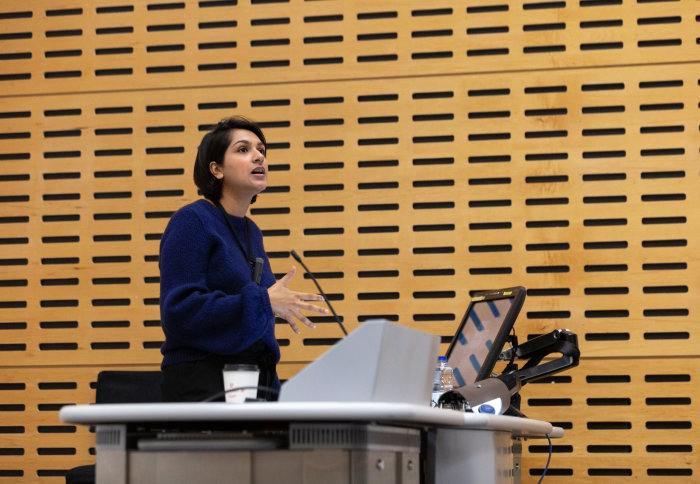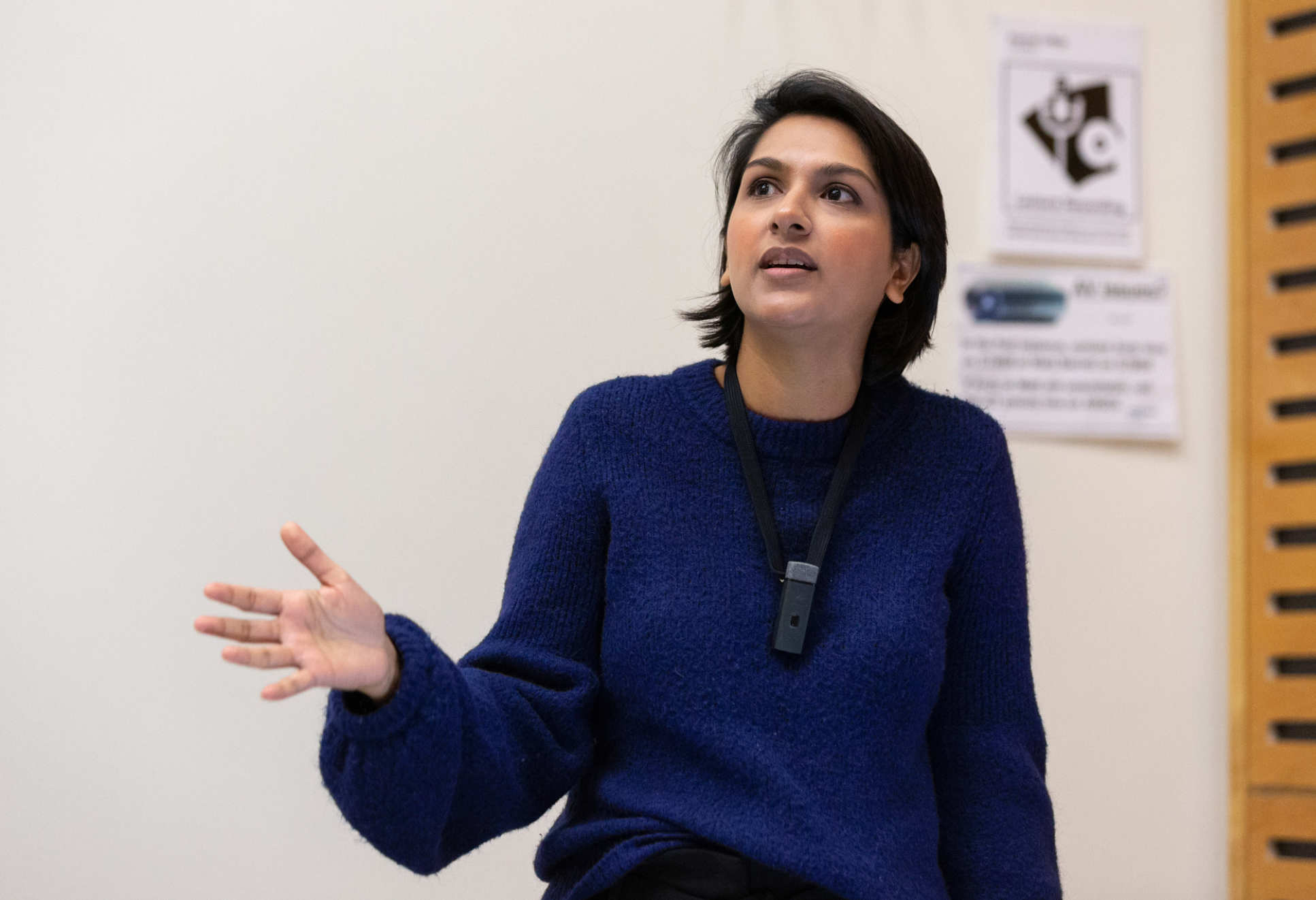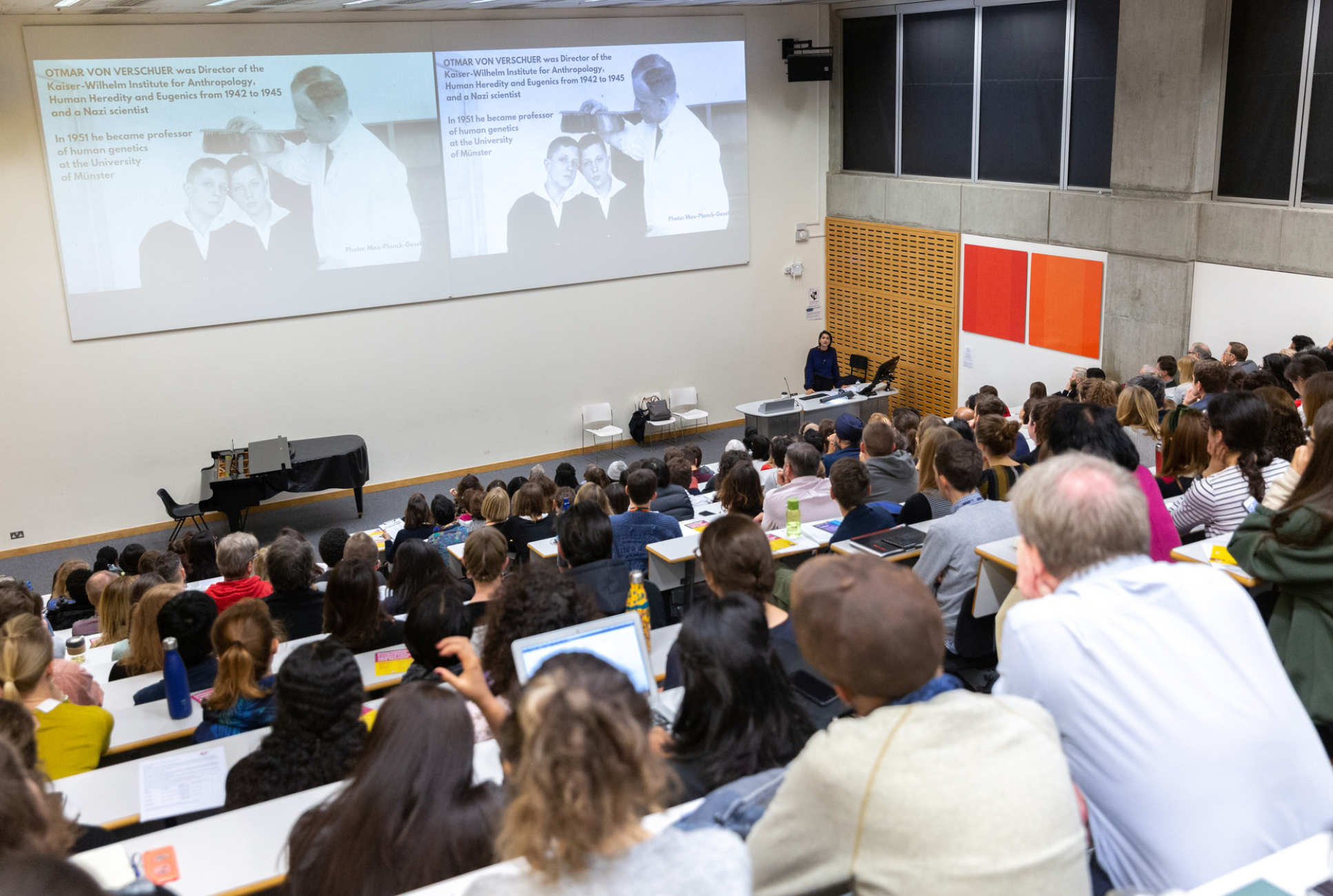“Race science is not about biology, it’s about power”

Science journalist and author Angela Saini tackled the question of why science continues to be plagued by ideas of race.
Angela’s lecture, named after her new book Superior: The Return of Race Science, was delivered to mark Black History Month at Imperial. Organised by the Equality, Diversity and Inclusion Centre, the lecture was attended by over 300 people.
In case you missed it, here are our top takeaways from Angela’s lecture.
You can also listen to an audio interview with Angela Saini below.
From eugenics to genetics
“Scientists who want to further work in their field are continuing to use language of the past.” Angela Saini
Angela discussed how eugenics transformed into genetics following World War Two, with many scientists who had been proponents of eugenics just switching fields. Genetics was seen as a move away from studies that involved crude measures, such as skull structure.
Angela explained how private funding has helped certain research publications continue to perpetuate damaging myths around race, and has allowed those who support racial segregation to claim that ‘science is on our side.’
“There is a huge amount of capital in saying that race is biologically underpinned,” Angela said. “The idea of race never really went away. Yes, the language may have changed, but the categories used to group people never really went away.”
Even in today’s digital age, Angela said that controversial science found in publications like Mankind Quarterly continues to be shared. “Scientists who want to further work in their field are continuing to use language of the past.”
Race in medical research

"Medical research gives data based on race but other explanations, such as diet, are overlooked in favour of racial explanations." Angela Saini
Angela argued that even the most well-intentioned scientists who are anti-racist can fall back on using racial groups to categorise and analyse subjects in their research.
“Race is the perfect example of science gone wrong,” Angela explained. “Even the best scientists will resort to race.” Many scientists are unable to explain how they define race and use the idea of race as a proxy for something else.
Angela said: “Medical research gives data based on race but other explanations, such as diet, are overlooked in favour of racial explanations. Some scientists are projecting contemporary notions of race onto the evidence. Reconstructing the truth in this way is deeply dangerous.
“If you can’t define your variables, don’t use them. If you can’t define race, don’t use race.”
Angela argued that when medical research is centred on race, it can be an attempt to prove that race is an inherent, biological difference and not a social construction. “It is morally wrong to use race in biological settings,” she said.
Constructing identity around myths

"Race science is not about biology, it’s about power. It’s a game we’ve been playing for hundreds of years, and we’re still playing it today.” Angela Saini
Angela mentioned the recent growth in popularity of ancestry testing. Angela claimed that this type of testing is flawed as it focusses on segregating people into groups. “It speaks to the fuzziness of race. Ancestry testing is a multi-billion dollar business that reinforces the idea that race is real,” Angela said.
Angela went further and commented that “race makes less sense the further you go into the past.” She said: “People are constructing identity around myths, and then using science to reinforce those myths. We still live with these myths now. Race science is not about biology, it’s about power. It’s a game we’ve been playing for hundreds of years, and we’re still playing it today.”
Imperial College Union and the African Caribbean Society are marking Black History Month with a range of events throughout the month.
Article text (excluding photos or graphics) © Imperial College London.
Photos and graphics subject to third party copyright used with permission or © Imperial College London.
Reporter
Martha Salhotra
Communications Division